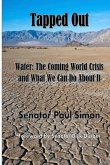The book analyses the principal socio-economic problems afflicting Sub-Saharan Africa. It advances the hypothesis that Africa hitherto has never been a master of its own destiny and hence giving way to external influences to determine the causes and solutions of its main problems due to a major system flaw. The slave trade and its abolition, colonisation and the demarcation of national boundaries, economic participation in the globalised environment, aid, the containment of famines and civil wars have all been directly linked to the influence of external forces. The lack of enduring institutions within the systems of Sub-Saharan Africa is the chief cause for this pervasion. The slave trade and its abolition took place without Africa's active participation. The major decisions today affecting Sub-Saharan Africans are exogenous in origin. After the slave trade colonisation came to Africa after which independence was granted. The elites who took over did not possess the agenda for socio-economic transformation of society. They had a narrow agenda for self-advancement. Consequently corruption and repression have reigned and Africa has not only lost the opportunity to tackle the pressing problems of its peoples i.e. crushing poverty, ignorance and diseases but has also squandered most of what had already been accumulated at the time of independence. These conditions have led to aid dependence, famine and the spectre of civil wars that threaten to engulf the entire sub-continent. Forty years after independence Sub-Saharan Africa is still brazenly courting outside help in the form of aid for the containment of famine, financing of economically collapsing governments and the pacification of civil wars. Nevertheless Africa's turn to come of age to reverse this process of decline and reinvent itself is urgently needed and long overdue. Socio-economic transformation of societies requires purposeful actions as testified by South East Asian nations in the contemporary world and Russia during the reign of Peter the Great and Japan during the Meiji Emperors. The problems of Sub-Saharan Africa are deeply rooted due to the absence of enduring institutions that can only be provided and guaranteed continuity in an environment where the social culture is strongly oriented towards reading, writing and hence record keeping. Leaving developed knowledge and historical records in the custody of storytellers entails enormous risk in terms of loss of knowledge and colossal impracticality of perfecting it. To develop, Sub-Saharan Africans require embarking on an era of enlightenment by eclectically adapting the best of worlds in the West and East. If transformation of Sub-Saharan Africa does not take place voluntarily change shall again be initiated by outside powers including the prospect of a blatant re-colonisation. For efficient utilisation of non-renewable resources is a compulsory quest throughout the world in order to support the growing populations of the world as long as possible. Efficient utilisation in certain parts alongside inefficient utilisation in Africa cannot forever be allowed to continue. The book raises the relevant issues that are required to be discussed and said about Sub-Saharan Africa. It is an unflattering handbook for change in the sub-continent. It is compulsory reading for policy makers, donors, academics, as well as the general public.
Bitte wählen Sie Ihr Anliegen aus.
Rechnungen
Retourenschein anfordern
Bestellstatus
Storno







